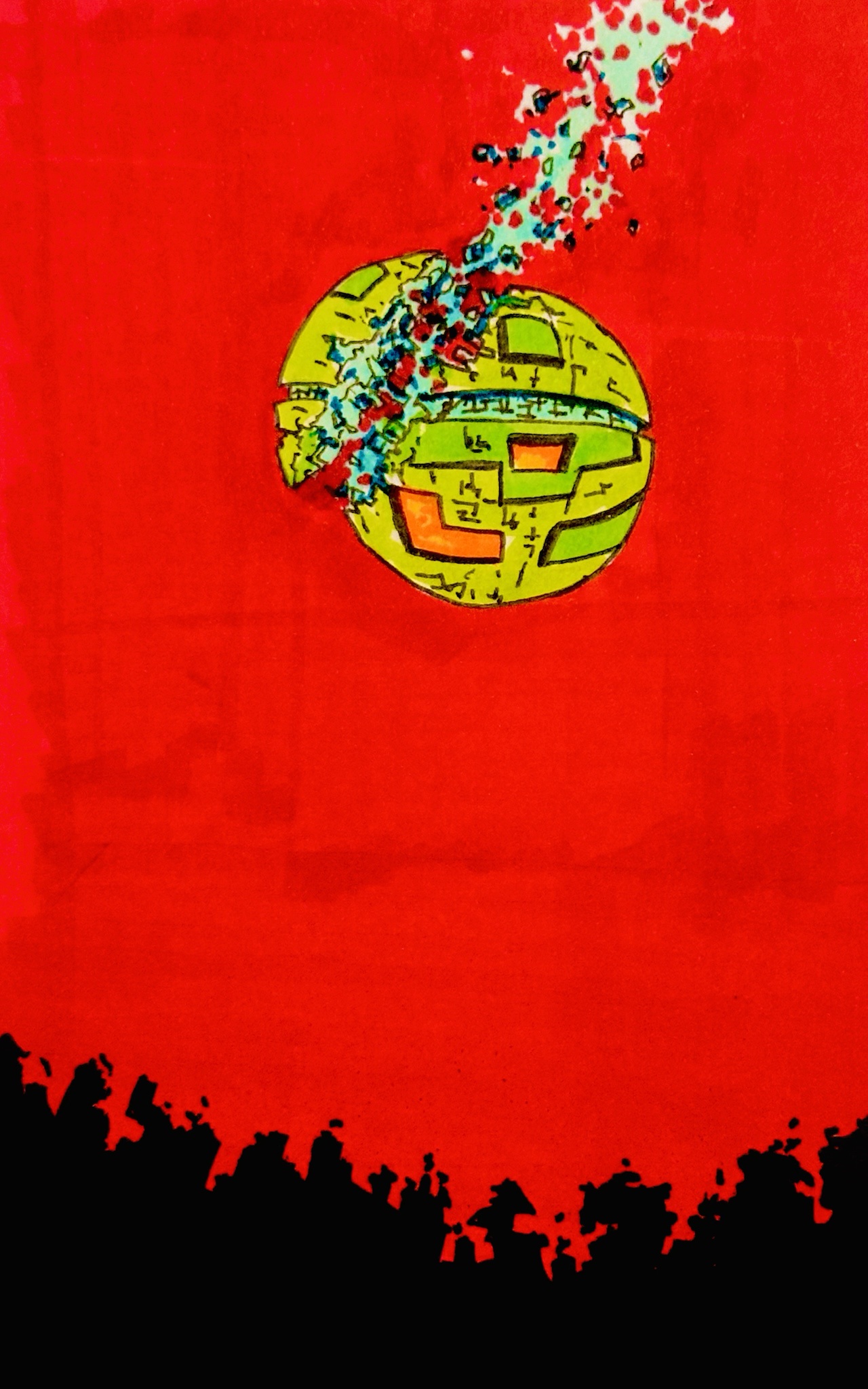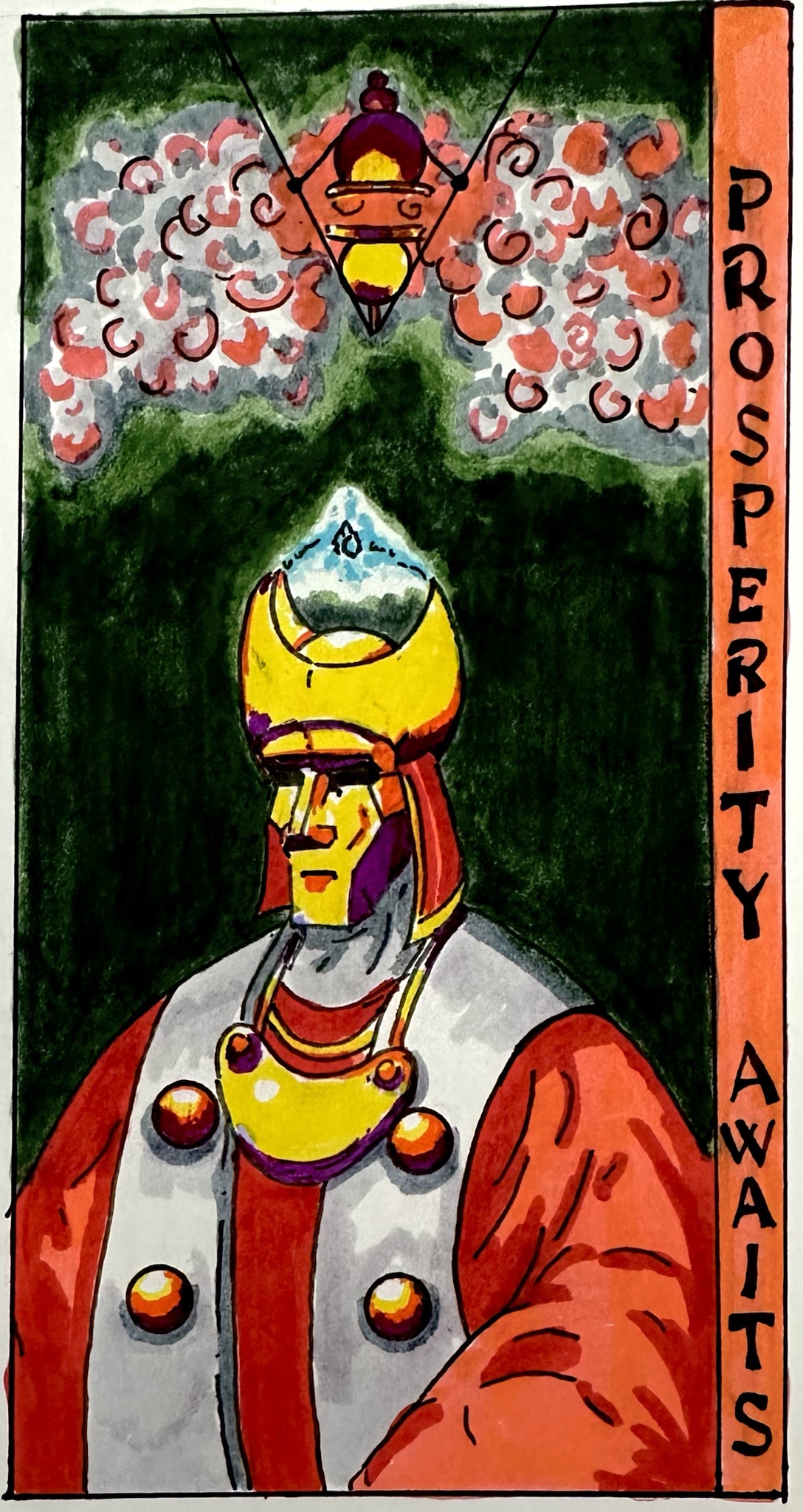The planet Neu Valais was a command hub for the human colonial militia during the war. As human territories were lost to the Cyborg Collective, FTL travel paths to the planet opened up and a CYCOL nodesphere, a massive command ship took a position over the planet. In a desperate attempt to destroy it, and experimental one shot cannon on the ground fired. It hit and damaged but did not destroy the nodesphere.

The fight in orbit and on the ground was brutal, with CYCOL attacks creating holes in air defenses to land ground troops to further destroy the air defenses and command centers.

Corporate military forces which had been assigned to protect corporate material on loan to the colonial forces and to protect VIPs were ordered to pull out. The corporations saw the fight as a loss.

The corporate forces eventually pulled completely off the surface and CYCOL focused on assaulting the deeply entrenched colonial military command centers.

But that all happened back in '73 and the war ended not soon after that.
Everyone knows the ending of the war, so I won't retell it. The surface of Neu Valais an urban wasteland, the nodesphere above it derelict. Some crazies out there looking for scraps. Even some CYCOL out there that were never quite right after they lost the nodesphere.

Nowadays, VB-Sierra is the planet that's the big last hub for humans heading out past the stable areas. The corporations even made nice with the Arweli, which rubs some people the wrong way given how the war went, but I guess it's easier to forgive frogs than tin heads.

But profit potential is enough to keep the peace, more or less. VB-Sierra's infrastructure is growing every year. Which is amazing for a planet with mutomorph infestation.

When the Universal Corporate Council reorganized in '75, the Prosperity Church gained a primary seat as a recognized corporate power.

By then, there was a lot of religion going around.

But '75 into '76 was a lot of rumbling in the corporate controlled spaces. The colonies had collapsed during the war, leading to their populations flooding into corporate space. Many of them had been put to work, but it was clearly an unsustainable situation. Some groups of displaced colonists had gone on a one way trip to earth, but the results of those trips was yet unknown. Many other colonists, especially military veterans or those with special expertise looked to go back out into the old warzone, what was now thought of as a frontier to make profits in salvaging valuables or surveying for the rebuilding of colonies.

What is out in the frontier are a great deal of unknown unknowns. Teams that head out into the frontier are not just seeing what has become of human colonies, but venturing into what used to be Arweli or CYCOL territory and seeing things never before seen by humans.

The Universal Corporate Council, UCC, was a collective entity representing the interests of the major corporations. Before the war it was powerful but balanced by the combined powers of the colonies. After the war, it is the only central human political entity remaining. At least aside from possibly earth, but no one really knows what it is like anymore.
The UCC wants to expand its tendrils into the frontier by directly controlling the new colonies that will be rebuilt. Of course now that there is little external opposition, the infighting among UCC members and executives is in full swing.


That was a fun read!
Here's something I find a bit anachronistic:
Why wouldn't CYCOL just nuke 'em from orbit? Why land troops if they're just busting stuff up? Couldn't that damage be done from orbit?
There would be higher concentrations of defenses in certain areas. Often close and long range atmospheric AAA bundled together, in turn defending defenses that could reach into orbit, and important military targets.
Important military targets were themselves often hardened and buried, further decreasing the effectiveness that even nuclear weapons could have.
The CYCOL landing forces would to get onto the planet in places where the AAA was thin, and then to either attack the AAA from the ground to open up more possible landing sites, or to make their way underground and into the hardened structures.